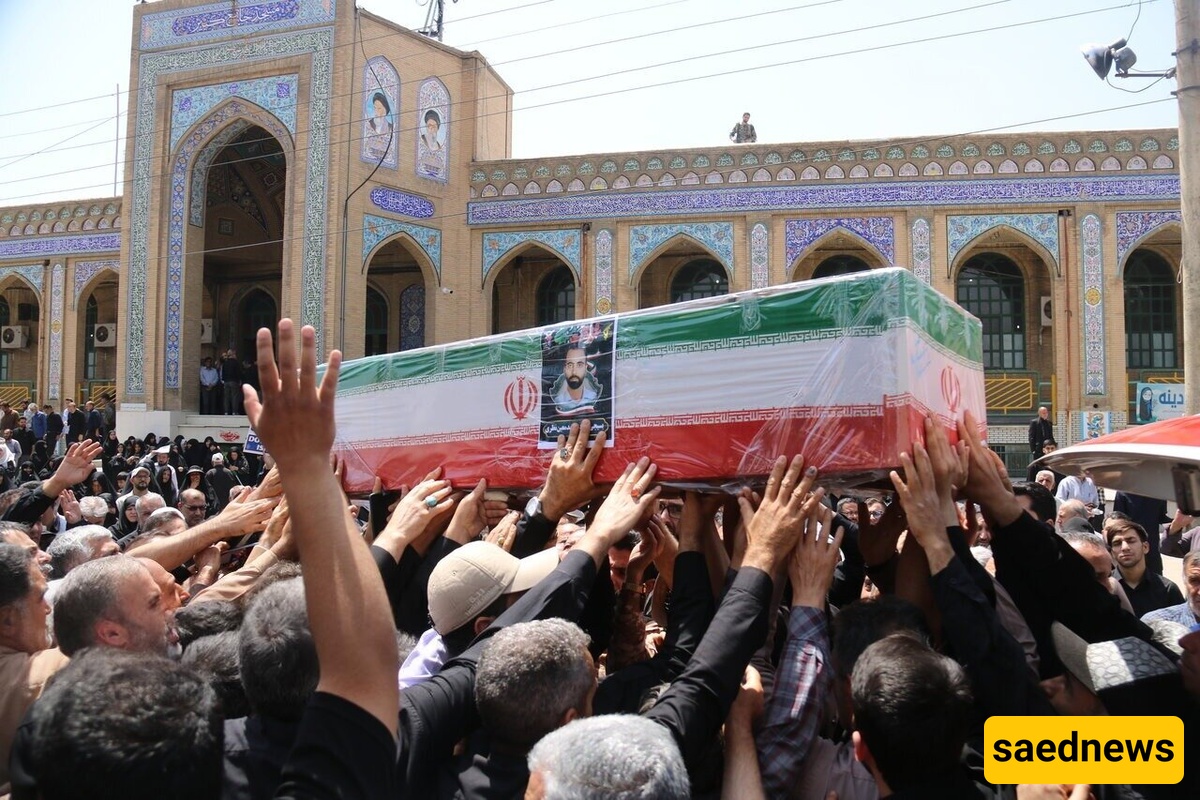SAEDNEWS: On Journalist’s Day, Iran honors the twelve journalists killed during Israel’s recent 12-day offensive, spotlighting a longstanding pattern of targeted attacks against media workers exposing the truth amid escalating regional conflict.

August 8 marks Journalist’s Day in Iran, a solemn tribute to those who spilled blood for truth. Rooted in the 1998 martyrdom of Mahmoud Saremi—an Iranian reporter killed by alongside eight Iranian diplomats in Mazar-i-Sharif, Afghanistan—this day now mourns a new generation of media martyrs.
During the Israeli regime’s 12-day aggression in June, Iran’s media landscape was scarred by the loss of twelve journalists and media workers, part of the over 1065 Iranians whom Israel killed. These were not incidental casualties; targeted strikes turned newsrooms into graveyards.
For decades, Israel has transformed censorship into a killing strategy, assassinating journalists from Gaza’s Walaa Al-Jaabari to Iran’s Nima Rajabpour. These killings reflect a sustained campaign to erase resistance narratives and stifle voices that expose the regime’s aggression—a pattern spanning generations.
The Israeli regime’s war on journalists is no secret. In 2022, Shireen Abu Akleh, a Palestinian Al Jazeera correspondent, was gunned down in Jenin. Since October 2023, over 120 journalists have perished in Gaza, with strikes in 2025 claiming lives like that of Wafa al-Udaini, a young reporter killed in an airstrike on her home, as documented by Al Mayadeen. From the West Bank to southern Lebanon, media workers remain targets—because they carry what the regime fears most: the unvarnished truth.
Coinciding with Journalist’s Day, we at the Tehran Times offer this special feature, weaving the stories of four Iranian media martyrs—Ali Tahmasbi, Fatemeh Salehi, Mohammad-Moein Nazari, and Masoumeh Azimi—through intimate conversations with their families.
The quiet revolutionary: Ali Tahmasebi’s unfinished cup of tea
Ali Tahmasebi, 25, was beneath rubble for three days before rescue teams found his shattered body. His brother Mohammad’s voice trembles as he speaks of him: “His eyes were gone. His legs were crushed. His hands burned. We never knew his missions—he’d only say, ‘I do simple work.’”
Born in Tehran Province’s Qiamdasht neighborhood, Ali was a man of action, not words. He funneled his earnings from working in Basij News Agency into charity, often telling his mother, “God will return it, don’t worry.”
During Fatemiyyah ceremonies (days in which Shia Muslims mourn the martyrdom of the daughter of the Prophet Muhammad PBUH), he insisted the first cup of tea be served to the sick or needy—a ritual cut short on the day he was to become an honorary worker of Imam Reza’s shrine.
His loyalty to the Leader of the Islamic Revolution, Ayatollah Seyyed Ali Khamenei, was absolute. “Ali repeated like a mantra: ‘The Leader speaks the truth. That’s the path we follow,” Mohammad recalls. In a final message to Iran’s youth, the family implores: “Do not let martyrs’ blood be trampled. Stand by the Leader.”
The educator of truth: Fatemah Salehi’s library of resistance
When Israeli missiles struck the IRGC’s Imam Hassan Mojtaba Base in Alborz, Fatemah Salehi—a 40-year-old professor, journalist, and director of the Savojnama news platform—was compiling evidence of Israeli war crimes. Her brother Sajjad describes her as “a woman whose faith was her armor.”
Salehi’s home library held nearly 1,000 volumes on religion, politics, and media, her brother says. By day, she taught university courses; by night, she flooded social media with analyses of the Israeli regime’s atrocities. “During the war, she worked past midnight,” Sajjad says. “She believed the media was the frontline against lies.”
Her legacy transcends martyrdom. Whether through social media tributes or op-eds, those who knew her—including her students—honor how she exposed truths that not even Israeli bombs could silence.
The quiet hero: Moein Nazari’s legacy
Three days before his death, Moein Nazari called his brother Amin: “The Revolution endures through the blood of martyrs.” The 34-year-old who worked at the Basij News Agency was crushed under debris during a strike on Tehran’s Basij command center.
Nazari’s life mirrored his words. He cleared debts before his death, though his family later discovered he’d quietly funded struggling colleagues.
“He’d say, ‘Revolution isn’t a slogan—it’s sacrifice,’” Amin shares. Nazari’s will requested burial beside his uncle, a 2016 martyr against ISIS in Syria—uniting two generations in a cemetery of love and sacrifice.
His family is filled with a sense of both pride and sorrow. "We're proud to offer this martyr to the Islamic Revolution," Amin declares, highlighting their unwavering support for their cause. However, their grief and anger are also clear as they stand resolute in their call for justice, adding: "This vile Zionist regime must end."
The studio sentinel: Masoumeh Azimi’s unbroken commitment
On June 26, as the Israeli regime bombed IRIB’s headquarters, Masoumeh Azimi refused evacuation. Her husband, Mohammad, a police officer, recounts: “She stayed knowing martyrdom loomed. As Imam Khomeini said, ‘Kill us—we rise more awakened.’”
The garb of martyrdom doesn’t fit just anyone. She stood firm, the voice of truth.” He sees the war as a clash not just with the Tel Aviv regime, but with the whole NATO aggressors.
Azimi, 47, was among those targeted in a strike the regime’s military cynically dubbed “precision-guided.” Footage showed anchor Sahar Emami ducking glass shards as the studio exploded. “What you hear is the aggressor attacking truth,” Emami declared moments before the ultimate blast.
Foreign Minister Abbas Araghchi later honored IRIB martyrs at a press conference: “They thought bombing IRIB would mute Iran. Instead, our roars grew louder.” For Mohammad, his wife’s legacy is immortal: “We had no children, but she was Iran’s daughter.”

